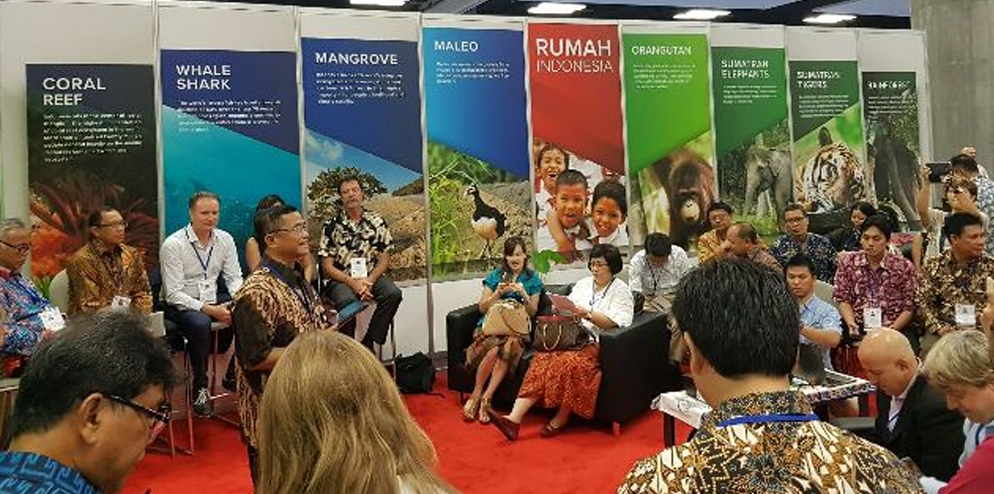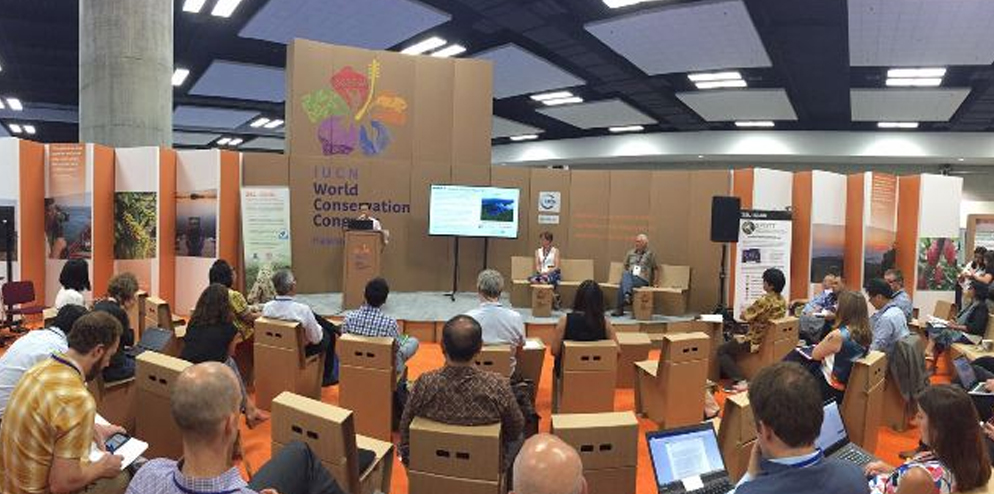September 15, 2016
APRIL Group delegation in September attended the IUCN World Conservation Congress in Hawaii to contribute to global discussions on strategies to advance forest conservation and restoration as part of an integrated landscape-level approach to sustainable forestry in Indonesia.
Led by APRIL Indonesia Operations Managing Director, Tony Wenas, APRIL Group’s delegation shared its on-the-ground experience in balancing forest production and protection, ecosystem restoration, community level fire prevention, forest conservation and protection and sustainability policy implementation, supporting the company’s view that the private sector has an obligation to ‘walk the talk’ in support of the Indonesian government’s push to achieve environmental and economic goals.

The conversation remains as important as it is timely. In Indonesia, population pressures and the economic reality in rural areas have intensified the need to proactively manage the landscape to ensure immediate and long-term protection for conservation areas.
As conservation and restoration cannot be done in isolation, all stakeholders in the landscape must share a common goal to protect unmanaged land from encroachment and illegal conversion. History and the reality on the ground today demonstrate that an unmanaged landscape is vulnerable to deforestation.
APRIL Group believes that the most effective way to protect forests is to address the root economic causes of deforestation as part of a collaborative public-private sector model that is focused at the landscape level.
Strategies such as job creation, community farming support, training in land management practices within communities, and support for the diversification of local economies all address the economic drivers of deforestation and contribute to the creation of a sustainable, balanced local economy.

Add to this ecosystem restoration, actively managed conservation, forest protection and community level capability building to encourage sustainable land management practices, and you have the building blocks of a cohesive landscape level approach to sustainable development.
The implementation of Restorasi Ekosistem Riau (RER) program in restoring 150,000 hectares of previously degraded peatland forest in Kampar Peninsula and Pulau Padang, provides a case study to help spark discussion at the IUCN congress.
Since 2013, RER has been developed as part of a broader production-protection model centred on an integrated landscape approach. Achievements to date include identifying 452 species – 112 tree species, 72 mammals, 193 birds and 75 amphibian and reptile species; establishing 3 native-species tree nurseries with 2,500 saplings, with 1,500 now planted; completing ethnography and well-being studies in 6 communities; developing an eco-village in Pulau Muda & Segamai village; training community forest rangers who patrol and protect the conservation area and conducting camera trap surveys to assess wildlife population.
Valuing natural capital is very much part of our business approach and sustainable forest management plan. Ecosystem restoration, fire prevention and local economic development are all part of the same landscape approach.
Indonesia can be a global leader in sustainability. The Government is leading the charge with strong support from the private sector and all other stakeholders. The partnerships and collaboration that underpin these efforts will be key to tackling Indonesia’s unique social, economic and environmental dynamics.